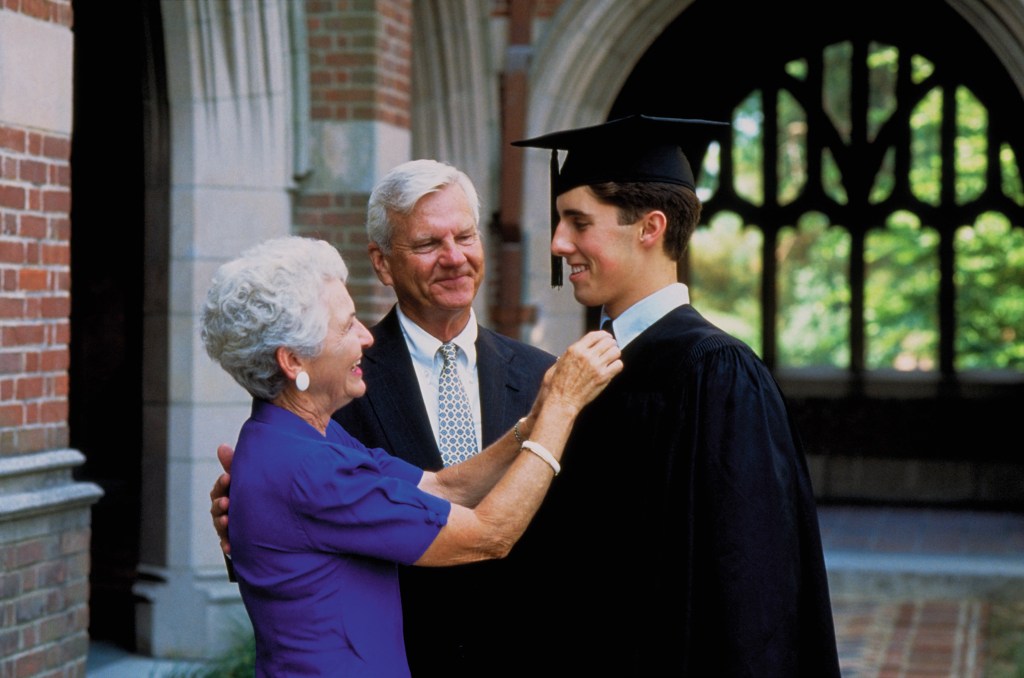Americans who drive Volvos live far longer than those who drive most other cars. Who knew that driving a vehicle that looks like a child’s drawing of a car might save your life?
A Volvo might be good in a crash, but so would a lot of other cars. A Toyota or a Kia might do just as well or better. The life expectancy of Volvo divers isn’t about what’s in them, but rather who.
Women, particularly affluent women, buy Volvos. And rich women live longer than anybody else in our society. On the road, where men account for three quarters of all traffic fatalities, and off, women as a group outlive men by an average of six years. And rich people outlive poor people by an even greater margin, almost 16 years at the extremes.
So, if you want to have the best chance to live to a ripe old age, don’t buy a Volvo. Be a rich woman. Which might be very challenging for many Americans …
The demography of death is very much with us in the world of politics. We heard recently, for example, that red states suffered many more deaths from COVID, perhaps because of a refusal by Republican voters to get vaccinated. Could that tip the 2024 election to Democrats because COVID mortality is clustered among older Americans, the highest turnout and most Republican group in our electorate?
But since 2015, it has been the work of Princeton economists Anne Case and Angus Deaton that has driven the discussion of, as Politico put it, “what’s wrong with white people.” In their important, influential paper that year, Case and Deaton found that “deaths of despair” caused by drugs, alcohol, and suicide were driving down life expectancy for middle-aged white Americans, particularly men.
This despair, it was also said, was making those still living vote for a bad person. As the Washington Post put it with the paper’s typical restraint in such matters: “Death predicts whether people vote for Donald Trump.”
Not since the 1960s has America been so focused on the plight of and dangers from poor whites. Then, they were politically powerful as the centerpiece of the New Deal coalition, but also viewed as a barrier to racial integration and ending the war in Vietnam. Now, it is their membership in the MAGA movement that gives them clout and makes them a menace in the eyes of many of their affluent counterparts.
The thinking, which has a long history in our politics, holds that poor whites are voting against their own interests. Poor whites should, in the eyes of many elites, vote instead for Democrats and more generous economic benefits, but because of cultural anxiety driven by economic despair they side with their economic oppressors rather than their would-be liberators.
There is a little truth in that premise. As my American Enterprise Institute colleague Ruy Teixeira points out again and again, Democrats’ loss of cultural connection with the voters who were once at the center of their coalition has helped drive working-class white Americans (and other less-affluent voters) into the arms of the increasingly populist Republican Party.
Republicans, meanwhile, have become the party of despair as they pursue these voters, often alienating the more affluent suburbanites who make up about half of the electorate. If one major party has been unwilling to address the concerns of working-class white voters, the GOP has turned into a bunch of George Wallaces, obsessed with grievances against elites.
As we head into 2024 and the battle for these oft-remembered forgotten men, Case and Deaton, who fleshed out their initial findings in a 2021 bestseller, Deaths of Despair and the Future of Capitalism, are back with more grim data.
But this time, they have an answer: College.
“What the economic statistics obscure in the averages is that there is not one but two Americas — and a clear line demarcating the division is educational attainment. Americans with four-year college degrees are flourishing economically, while those without are struggling,” they wrote in the New York Times. “Worse still, as we discovered in new research, the America of those without college degrees has been scarred by death and staggeringly shorter life spans.”
It’s college, or a lack of it, that we hear is killing these people.
“Educational status,” writes Yascha Mounk in The Atlantic, “has now overtaken other metrics, including race, in predicting one of the most important socioeconomic outcomes you can imagine: how long you get to live.”
That’s a funny word to use: “get.” It sounds as if people without degrees are being consigned to an early grave, the way they would if denied a life-saving vaccine or treatment. It’s as though if only someone had intervened and gotten those victims of despair in college and helped them obtain a degree, it all might have been different.
So, who gets a college degree in America these days?
Why, the people whose parents did, of course.
About 40 percent of all undergraduates today come from households in which neither parent attended college. That’s a decline from the 1990s when more than half of all college students were of the first generation to do so. Since the turn of the century, those numbers have been remarkably stable.
Also stable has been the rate at which first-generation students fail to graduate. According to data from the National Center for Educational Statistics, these students enroll mostly at schools with open admissions or that are “minimally selective,” where the overwhelming majority, 79 percent in the case of schools with open enrollment, never obtain a degree.
These students are also very often the best examples of our obsession with college and the insane mechanism we have devised for paying for it—or, in many cases, not paying for it. More than half of all student-loan holders owe less than $20,000, and those who do not complete degrees repay their debts at dramatically lower rates than their diplomate counterparts.
They told you to go to college—your life might even depend on it—so you took out a loan. You couldn’t keep up with the work—maybe because you’re not a good student, maybe because you just don’t care about school, or maybe because life got in the way—and now you’re dragging around $10,000 in debt for 30 credit hours at Metro Valley State Regional Community College. They told you college was “a necessary passport to the upper echelons of American life,” but all you got was a bunch of past-due notices.
Mounk and the researchers get closer to the point in the acknowledgement that it is graduating from college, not what one learns there, that makes the difference: “‘We have increasingly come to believe,’ [Case and Deaton] conclude in their new paper, that a college degree ‘works through often arbitrary assignation of status, so that jobs are allocated, not by matching necessary or useful skills, but by the use of the BA as screen.’ In an email to me, Deaton was more blunt: Both he and Case believe that the college degree is most important as ‘a route to social standing.’”
So close!
But college is far more a reflection of status than it is a path by which to reach it. The people most likely to earn degrees grew up in homes where their parents, who also went to college, expected them to follow suit. The status isn’t just for the kids, either. Why do you think all those celebrities paid extravagant bribes to get their kids into competitive schools? Did they think that sending their kids to USC instead of a state school would save their lives, or was it something you buy that tells the world you’re smarter, richer, and more discerning than the rest?
The most important recent work on all this was done before Trump got upper-class Americans thinking so much about deaths of despair and “what’s wrong with white people.”
In his 2012 book Coming Apart, Charles Murray laid out for us what happened when, after the G.I. Bill, college became the great sorting mechanism to identify and isolate America’s broad elite.
When I was born, families like mine in which one parent had a college degree and the other did not were very normal. Now, they are not. The resulting “cognitive homogamy” has left the top 20 percent out of touch with the rest of the country and the rest of the country without the benefits of living near, marrying, and making their lives with those high-IQ, success-oriented folks who now live clustered and cloistered in enclaves Murray calls “super zips.”
College isn’t the path to longevity and prosperity so much as it is the marker that points to other traits that coincide with health and wealth, namely being from a healthy, wealthy family.
There is a divide between college and non-college America, and it is becoming sharper all the time. But it’s not what’s in college. It’s who.







Please note that we at The Dispatch hold ourselves, our work, and our commenters to a higher standard than other places on the internet. We welcome comments that foster genuine debate or discussion—including comments critical of us or our work—but responses that include ad hominem attacks on fellow Dispatch members or are intended to stoke fear and anger may be moderated.
With your membership, you only have the ability to comment on The Morning Dispatch articles. Consider upgrading to join the conversation everywhere.